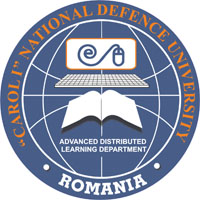ADAPTING TERTIARY ENGINEERING EDUCATION TO THE NEW LEARNING ENVIRONMENT
ADAPTING TERTIARY ENGINEERING EDUCATION TO THE NEW LEARNING ENVIRONMENT
Author(s): Daniela Cristina MOMETESubject(s): Education
Published by: Carol I National Defence University Publishing House
Keywords: tertiary education; engineering; students’ empowerment; collaborative learning; knowledge society
Summary/Abstract: This paper has as main objective the presentation of an integrated pedagogical solution that aims to transform the teaching act designed for students and Bachelors in engineering into a more adapted one to the challenges of present. The author of this paper identifies the bottlenecks of the engineering education and suggests a mix of solutions that are to be followed with the aim to stimulate the students’ ethical development, involvement and creativity. The solutions encompass the rethought of syllabi for engineers of all specialties and the starting point is considered to be the assessment of the technical relevance, sufficiency, and the correlation of theory with practice for all disciplines. This reshaping must be done having in mind the well spread copy-paste mentality, therefore the syllabi should also incorporate a special set of values and moral principles. Another solution taken into consideration is the evolvement of the teaching methods that must include instruments of the actual digital era, having in mind the new technologies and the new possibilities of collaborative learning. The design of new e-books and e-case studies for students, the use of BYOD ("Bring Your Own Device") solution are some examples that will allow students to properly integrate the information acquired by attending different courses and also will encourage their collaboration and the building of powerful teams. Students’ empowerment and stimulation of collaborative learning are also seen as major solutions for the enhancement of the efficiency of the teaching act. The paper presents an original system of student’s active involvement into the learning process and is based on a method employed by the author of this paper in her own courses held for Bachelors in economic engineering.
Journal: Conference proceedings of »eLearning and Software for Education« (eLSE)
- Issue Year: 11/2015
- Issue No: 02
- Page Range: 253-258
- Page Count: 6

